Why Privacy Needs Math: A Student’s Guide to Staying Safe Online
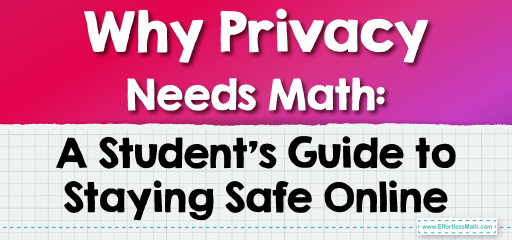
Math is undoubtedly fascinating, and if you love this subject, you probably know what we mean by that. It is a universal language that fosters logical thinking and problem-solving, offering a unique perspective on the world. Not only that, but mathematics is also crucial in many professional fields, including engineering, medicine, and finance. Interestingly, math is also used in cybersecurity: for example, a cryptographer relies on number theory and algebra to create encryption algorithms, and they may also utilize statistics and probability to assess security protocols.
Clearly, data privacy wouldn’t exist without mathematics. For students, this connection is particularly important. Whenever you log into an online class, store files in the cloud, or send a message, math is working behind the scenes to safeguard your data. Two-factor authentication, encryption, and secure passwords all rely on mathematical principles. Understanding this not only shows the power of mathematics beyond the classroom, but it also demonstrates how it can safeguard your digital identity on a daily basis.
Exploring The Relationship Between Math and Data Privacy
Encryption is at the heart of data privacy, ensuring that your information doesn’t fall into the wrong hands. The most common encryption algorithms include the Advanced Encryption Standard, Triple Data Encryption Standard, Blowfish, Twofish, and RSA Security. These rely on complex mathematical functions to scramble information, and encryption is likely to continue improving further with the advancement of quantum computing.
Furthermore, mathematics plays an essential role in authentication, as it provides the algorithms required to verify the authenticity of digital credentials. Digital signatures, a standard authentication method, utilize complex mathematical algorithms to ensure a document’s authenticity and integrity, generating a unique code based on the document’s content. Additionally, mathematics provides the necessary algorithms to ensure access control, such as attribute-based and role-based control. In a nutshell, the invisible power of mathematics enables the secure transmission of messages, files, and logins, allowing students to safely navigate the digital world.
How To Protect Your Privacy Online As a Student
As a student, you rely heavily on the internet today, not just for socializing, but also for schoolwork. While this offers numerous opportunities, it also poses privacy concerns, so it’s imperative to protect your online privacy. Here’s how to do so:
Use Unique, Robust Passwords
One of the most important yet often overlooked components of Internet security is creating robust passwords for each of your online accounts. Passwords are the first line of defense for your online activity, and if they are weak – or overused – this will make you a target for cybercriminals. A robust password is one that is at least 12 characters long and combines lowercase and uppercase letters with special symbols. You want to avoid using popular phrases, dictionary terms, or easily guessable data, such as your birthday or name, when creating a password, because these can leave you vulnerable to threats.
To simplify the process of generating robust passwords, consider using a password manager. This solution is designed to create unique passwords for each account, saving time and frustration by storing complex passwords in one place, while also offering convenience. Just as a password manager for teams can make a huge difference in an organization, providing security and ensuring productivity, for you as a student, it will minimize the risk of jeopardizing your online security by choosing complicated passwords that are frequently changed.
Review Study Tools Before Using Them
Online learning apps and resources can undoubtedly be helpful. From advanced note-taking applications to interactive learning platforms, these technologies promise to transform learning sessions. However, the truth is that not all of them are trusted or secure, so it’s essential to approach them with caution.
Reading reviews can be very helpful in making an informed decision, as they allow you to determine which platform prioritizes user security and which views data as a commodity. They also help you identify data breaches, privacy issues, and obtrusive advertising.
Don’t Overshare Information Online
Student life revolves around social media platforms; however, it’s never a good idea to overshare personal information online because this can have negative consequences. Cybercriminals can easily exploit your accounts using tactics like social engineering or phishing. Information such as your pet’s name, birthday, or location can be used to guess security questions or passwords.
To stay safe, consider restricting access to your personal data and posts. Don’t provide trip updates or real-time location, as this will help protect you from threats like theft, and make sure to conduct regular reviews of your profile to delete obsolete personal information. Always remember: once you post something online, it’s hard, if not impossible, to remove it, so be cautious and think logically before you hit the “upload” button.
Be Wary of Public Wi-Fi
While convenient, public Wi-Fi poses significant risks to your digital privacy. Many students connect to public Wi-Fi when they are at the library or a coffee shop without realizing that they could easily become a target for cybercriminals. Malicious actors use “man-in-the-middle” attacks to steal sensitive data, emails, and login passwords from insecure networks, which is why you should be very cautious when using public Wi-Fi.
In particular, you should avoid using it for important accounts, such as email or online banking. If it’s imperative to use it, a VPN can help you encrypt your internet connection, thus ensuring that even if your data is intercepted, it remains unintelligible. Additionally, disabling automatic open network connectivity will prevent your device from connecting to potentially dangerous hotspots without your knowledge. Remember: proactive measures are always crucial when using public Wi-Fi, so don’t overlook them.
The Bottom Line
At the end of the day, even if math powers online privacy, you need to make conscious choices as a student navigating the digital world. While encryption, secure algorithms, and authentication are the backbone of digital safety, the truth is that they can only do so much if you overlook basic habits such as avoiding oversharing on social media, using robust passwords, and being cautious when using public Wi-Fi. Your privacy is worth protecting, so take action today and navigate the online world with confidence.
Frequently Asked Questions
How do you add and subtract mixed fractions?
To add or subtract mixed fractions, first convert them into improper fractions where the numerator (top number) is greater than the denominator (bottom number). You do this by multiplying the whole number by the denominator and adding the numerator to this product. For example, to convert 3 1/4 to an improper fraction, calculate 3×4 + 1 = 13, so it becomes 13/4. Once both mixed fractions are converted, add or subtract the numerators as required while keeping the denominator the same. Simplify the resulting fraction if possible. Understanding these steps, much like understanding data encryption in online safety, showcases the practical importance of mathematical skills in everyday activities and digital privacy.
For a more detailed guide on handling fractions, reviewing basic principles might be helpful.
What is a growing pattern?
A growing pattern in mathematics refers to a sequence or arrangement where numbers or objects increase according to a specific rule, often used to develop students’ ability to reason and recognize relationships between concepts. This concept is foundational in areas like algebra and plays a critical role in understanding more complex systems such as those used in online data protection. For instance, recognizing patterns can help students understand how encryption algorithms protect their information when they use internet services, highlighting the importance of math in cybersecurity. Understanding and identifying these patterns not only boost mathematical skills but also enhance critical thinking necessary for navigating and securing digital environments.
What is the relationship between chord and arc?
In geometry, the relationship between a chord and an arc in a circle is that the chord subtends (or creates) the arc. Specifically, any chord within a circle will connect two points on the circle, and the arc is the curve between these two points along the circle’s circumference. The central angle that intercepts the arc is twice the angle that intercepts the chord at any point on the circumference. Understanding these relationships can enhance a student’s ability to tackle geometry problems, much like the mathematical principles behind data encryption enhance online security by safeguarding data. This understanding is crucial, not just in academic settings but in practical, real-world applications like cybersecurity.
Related to This Article
More math articles
- How to Graph Single–Variable Inequalities? (+FREE Worksheet!)
- Full-Length HiSET Math Practice Test-Answers and Explanations
- How to Identify Characteristics of Quadratic Functions: Graphs
- 4th Grade PARCC Math Practice Test Questions
- How to Simplify Ratios? (+FREE Worksheet!)
- Top 10 Free Websites for STAAR Math Preparation
- 10 Most Common 4th Grade MAP Math Questions
- How to Solve Arithmetic Sequences? (+FREE Worksheet!)
- How to Graph Rational Expressions? (+FREE Worksheet!)
- How to Use Benchmark Fraction? Benchmark Fraction Definition


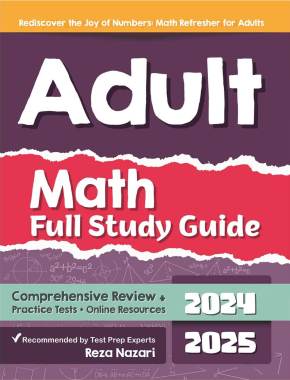
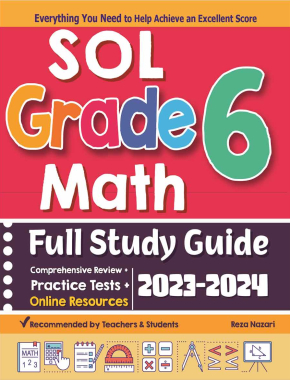
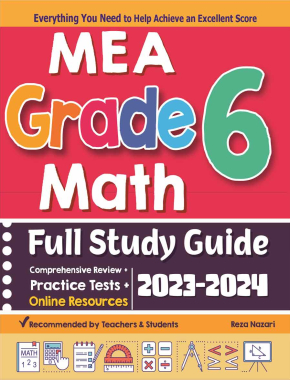
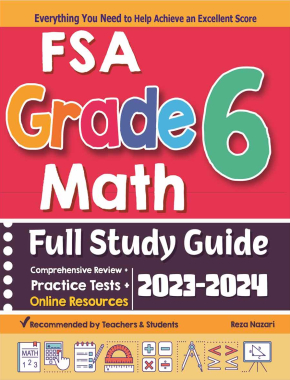
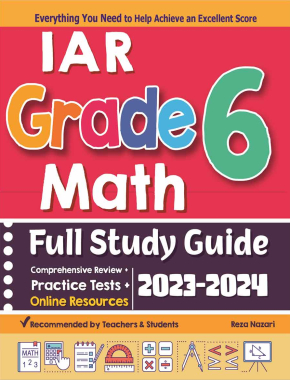
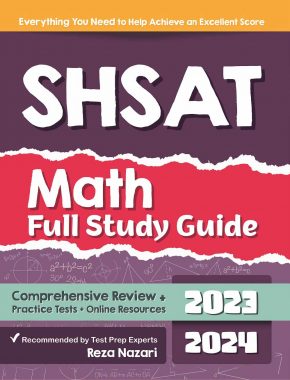
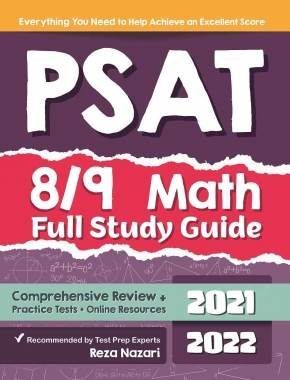
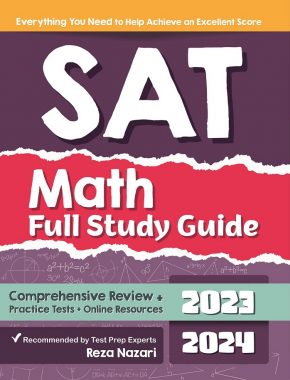
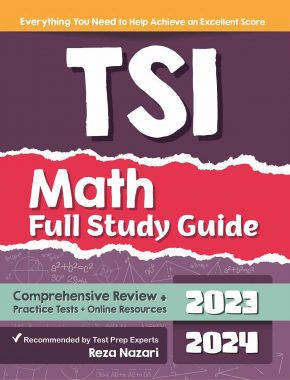


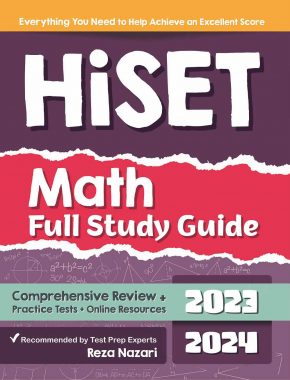
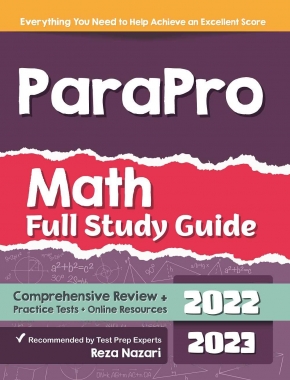

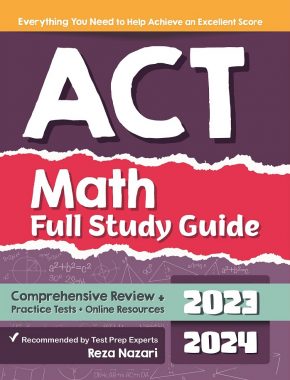


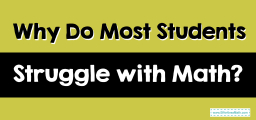





What people say about "Why Privacy Needs Math: A Student’s Guide to Staying Safe Online - Effortless Math: We Help Students Learn to LOVE Mathematics"?
No one replied yet.